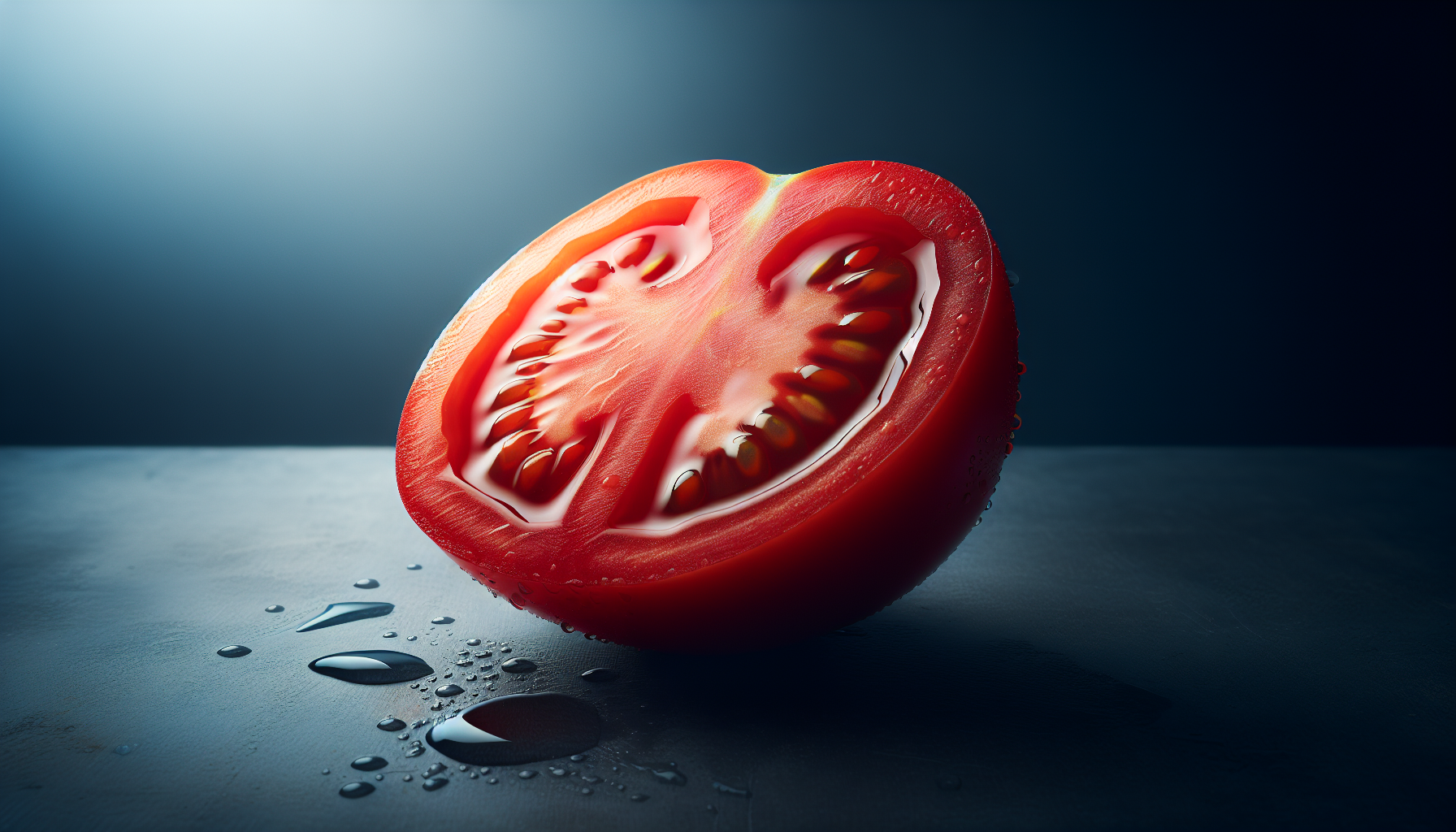Are you familiar with the uncomfortable burning sensation in your chest after indulging in a greasy, spicy meal? Well, you may have experienced acid reflux or gastroesophageal reflux disease (GERD). In an attempt to shed light on this common condition, recent scientific studies have explored the potential connection between poor eating habits and the development of acid reflux and GERD. A study published in the American Journal of Gastroenterology found that consuming high-fat meals can trigger acid reflux symptoms. Another study in the Journal of Gastroenterology and Hepatology revealed a link between high intake of sugary foods and increased risk of GERD. These studies highlight the significance of our dietary choices in managing and preventing these uncomfortable digestive disorders.
Discover the Ultimate Weight Loss Secrets Here!
Overview of Acid Reflux and GERD
Acid reflux, also known as gastroesophageal reflux (GER), is a condition that occurs when stomach acid flows back into the esophagus. This can lead to heartburn, a burning sensation in the chest. When acid reflux symptoms occur twice or more a week, it is known as gastroesophageal reflux disease (GERD). GERD is a more severe form of acid reflux and can cause long-term damage to the esophagus.
Definition of Acid Reflux and GERD
Acid reflux is the backward flow of stomach acid into the esophagus, causing a burning sensation in the chest known as heartburn. GERD, on the other hand, is a chronic condition where acid reflux occurs frequently, leading to more severe symptoms and potential complications.

Click Here for Proven Fat-Burning Strategies!
Prevalence of Acid Reflux and GERD
Acid reflux and GERD are common conditions that affect millions of people worldwide. According to the American College of Gastroenterology, about 60 million Americans experience heartburn at least once a month, and approximately 15 million experience it daily. GERD affects about 20% of the adult population in the United States.
Symptoms of Acid Reflux and GERD
Common symptoms of acid reflux and GERD include heartburn, regurgitation, chest pain, difficulty swallowing, and a chronic cough. These symptoms can be disruptive and significantly impact a person’s quality of life.

Unlock Your Path to a Healthier You!
Relationship Between Poor Eating and Acid Reflux/GERD
Impact of Unhealthy Dietary Habits on LES Function
The lower esophageal sphincter (LES) is a muscular valve that connects the esophagus to the stomach. It prevents the backflow of stomach acid into the esophagus. Unhealthy dietary habits such as consuming large meals, eating late at night, and overeating can weaken the LES, making it less effective in preventing acid reflux.
Influence of High-Fat Foods on Acid Reflux
Studies have shown that high-fat foods can contribute to acid reflux and increase the severity of GERD symptoms. Fatty foods take longer to digest, which delays stomach emptying and increases the risk of acid reflux. Additionally, high-fat foods can relax the LES, allowing stomach acid to flow back into the esophagus.
Role of Spicy Foods in Triggering Acid Reflux
Spicy foods are known to trigger acid reflux symptoms in some individuals. Capsaicin, the compound responsible for the heat in chili peppers, can irritate the esophagus and lead to heartburn. However, the impact of spicy foods on acid reflux can vary from person to person, and not everyone will experience symptoms after consuming spicy foods.
Effect of Carbonated Beverages on GERD Symptoms
Carbonated beverages, such as soda and sparkling water, can worsen GERD symptoms. The bubbles in these drinks can expand in the stomach, increasing pressure and causing acid reflux. Carbonated beverages also tend to be high in sugar and can contribute to weight gain, which is a risk factor for GERD.
Scientific Studies on Poor Eating and Acid Reflux/GERD
Study 1: Influence of High-Fat Diet on Gastroesophageal Reflux
A recent study published in the American Journal of Gastroenterology examined the relationship between dietary fat intake and acid reflux symptoms. The study found that individuals who consumed a high-fat diet had a higher risk of experiencing frequent acid reflux episodes. The researchers concluded that reducing dietary fat intake can help alleviate symptoms of acid reflux and improve overall health.
Study 2: Association Between Spicy Foods and GERD Symptoms
In a study published in the Journal of Neurogastroenterology and Motility, researchers investigated the effects of spicy foods on GERD symptoms. The study found that spicy foods significantly increased heartburn symptoms and acid reflux episodes in individuals with GERD. The researchers suggested avoiding or limiting the consumption of spicy foods as part of GERD management.
Study 3: Effects of Carbonated Beverages on Acid Reflux Episodes
A study published in the American Journal of Gastroenterology examined the impact of carbonated beverages on acid reflux episodes. The findings showed that carbonated drinks, especially those with high acid content, significantly increased the frequency and severity of acid reflux symptoms. The study recommended avoiding carbonated beverages to reduce acid reflux symptoms.

Other Factors Contributing to Acid Reflux/GERD
Smoking and Alcohol Consumption
Smoking and alcohol consumption are known to contribute to the development and worsening of acid reflux and GERD symptoms. Smoking can weaken the LES and increase stomach acid production, while alcohol can relax the LES and irritate the esophagus. Quitting smoking and moderating alcohol intake can help manage and reduce acid reflux symptoms.
Obesity and Acid Reflux
Obesity is a significant risk factor for GERD. Excess weight can put pressure on the abdomen, causing the LES to relax and allowing acid reflux to occur. Additionally, fat tissue produces substances that can worsen GERD symptoms. Losing weight through a combination of a healthy diet and regular exercise can help reduce the frequency and severity of acid reflux episodes.
Pregnancy and Acid Reflux
Heartburn and acid reflux are common during pregnancy due to hormonal changes and the pressure exerted on the stomach by the growing fetus. Pregnant women can manage acid reflux symptoms by avoiding trigger foods, eating smaller meals, and elevating the head of the bed. It is important to consult with a healthcare provider before taking any medications during pregnancy.
Hiatal Hernia and GERD
A hiatal hernia occurs when a portion of the stomach protrudes through the diaphragm into the chest cavity. This can lead to acid reflux and GERD symptoms. Hiatal hernias are often associated with weakened LES function. Treatment options for hiatal hernias and GERD may include lifestyle modifications, medications, or in some cases, surgery.
Tips for a Healthy Acid Reflux-Friendly Diet
Avoiding Trigger Foods
It is important to identify and avoid trigger foods that can worsen acid reflux symptoms. Common trigger foods include fatty and fried foods, spicy foods, citrus fruits, tomatoes, chocolate, caffeine, and carbonated beverages. Keeping a food diary can help identify individual triggers and guide dietary modifications.
Including Fiber-Rich Foods in the Diet
Fiber-rich foods can help promote healthy digestion and prevent acid reflux symptoms. Opt for whole grains, fruits, vegetables, and legumes to increase fiber intake. Slowly incorporating fiber-rich foods into the diet can help prevent bloating and gas, which can exacerbate acid reflux.
Eating Smaller, Frequent Meals
Instead of consuming large meals, try eating smaller, more frequent meals throughout the day. This can help prevent overeating and reduce the pressure on the LES. It is also important to eat meals at least two to three hours before lying down to allow for proper digestion and prevent acid reflux.
Maintaining a Healthy Weight
Maintaining a healthy weight is crucial for managing acid reflux and GERD. Excess weight can put pressure on the abdomen, leading to LES dysfunction and acid reflux symptoms. Incorporate regular physical activity into your routine and focus on a balanced diet to achieve and maintain a healthy weight.

Management and Treatment of Acid Reflux/GERD
Lifestyle Modifications
Lifestyle modifications play a key role in managing and reducing acid reflux and GERD symptoms. These modifications include avoiding trigger foods, maintaining a healthy weight, eating smaller meals, quitting smoking, limiting alcohol consumption, elevating the head of the bed, and avoiding lying down immediately after meals.
Medications for Acid Reflux/GERD
Over-the-counter antacids, such as Tums or Rolaids, can provide temporary relief from mild acid reflux symptoms. Proton pump inhibitors (PPIs) and H2 receptor blockers are available by prescription and can help reduce stomach acid production and alleviate GERD symptoms. It is important to consult with a healthcare provider when considering medication options.
Surgical Intervention
In severe cases of GERD that do not respond to lifestyle modifications and medication, surgical intervention may be necessary. Fundoplication is a procedure that wraps the top part of the stomach around the lower esophagus, reinforcing the LES and preventing acid reflux. Other minimally invasive procedures may also be available and can be discussed with a healthcare provider.
Conclusion
Poor eating habits can contribute to the development and exacerbation of acid reflux and GERD symptoms. Unhealthy dietary habits, such as consuming high-fat and spicy foods, as well as carbonated beverages, can increase the risk of acid reflux episodes. Scientific studies have highlighted the detrimental effects of these dietary factors on acid reflux and have emphasized the importance of adopting healthier eating habits. By making dietary changes, including avoiding trigger foods, increasing fiber intake, and maintaining a healthy weight, individuals can manage acid reflux symptoms and improve their overall quality of life. Lifestyle modifications, medications, and in some cases, surgical intervention, can also be effective in the management and treatment of acid reflux and GERD. It is important to consult with a healthcare provider for proper diagnosis and personalized treatment options. With the right approach, individuals can successfully manage acid reflux and enjoy a healthy, symptom-free life.

